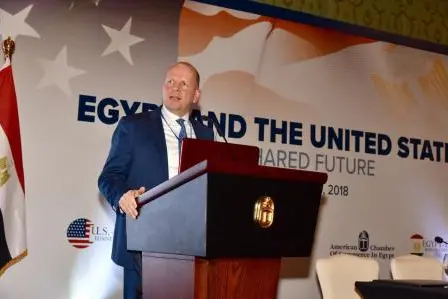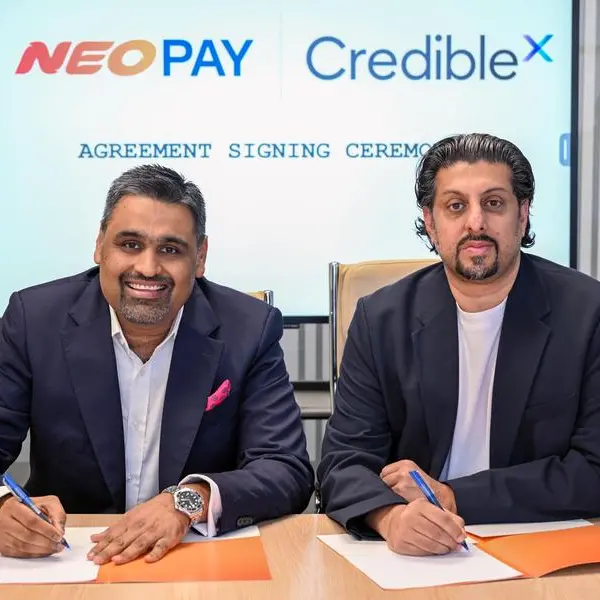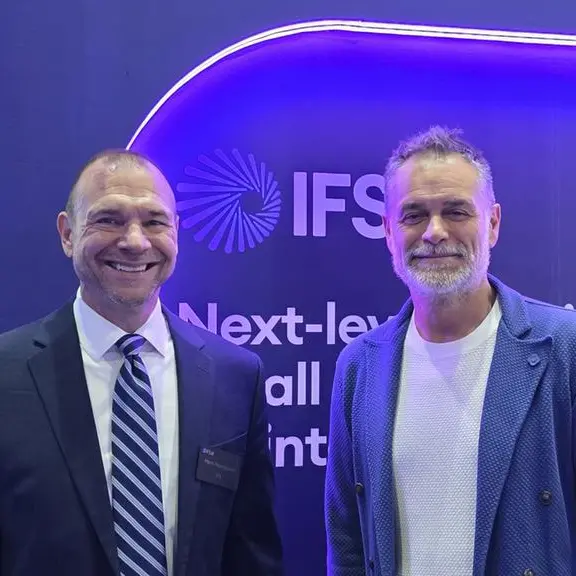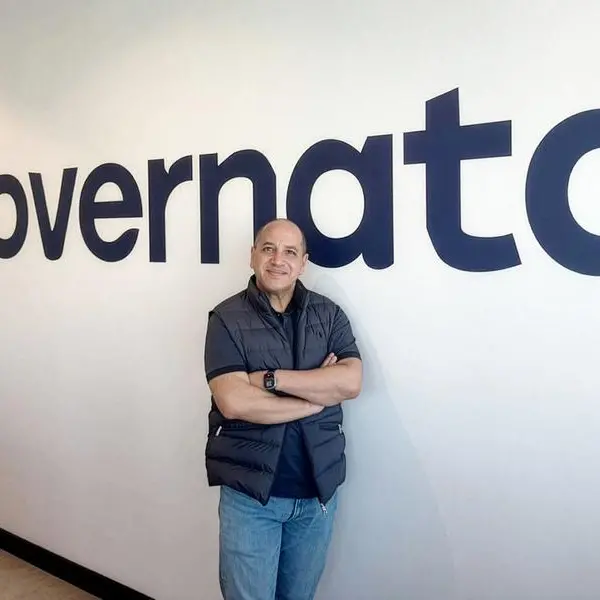PHOTO
Cairo, Egypt:- Mastercard, a leading technology company in the global payments industry, participated in the American Chamber of Commerce’s ministerial panel meeting in Cairo as part of the U.S. business mission to Egypt. Mastercard reiterated its support of the Egyptian government’s vision to accelerate the advancements of its payment ecosystems and drive inclusive growth through innovations in the payments industry.
Michael Miebach, Chief Product Officer, led the Mastercard delegation and outlined the company’s long-standing efforts in Egypt. For more than 15 years, Mastercard has worked closely with the Egyptian government to reduce cash usage and leverage the latest payment innovations for more inclusive economic growth.
“Egypt is going through a phase of rapid growth and transformation. Effective public-private partnerships present a tremendous opportunity to drive sustainable and diversified economic development in the country. We have worked to blend our global programs with local experience to meet the needs of Egyptians and how they want to pay and be paid,” said Miebach. He also praised the National Council for Payments initiative, under the chairmanship of President El-Sisi. As the first council of its kind in the world, the initiative reaffirms the Egyptian government’s firm resolve to advance financial inclusion in the country. “We will continue to draw on the right partners to solve real problems with products and solutions that further support Egypt’s continued economic growth,” Miebach added.
In 2013, Mastercard partnered with the Egyptian government to establish the world’s first interoperable mobile ecosystem, allowing 9 million citizens holding Mastercard mobile wallets to transact in a safe, secure and convenient way. Mastercard and the Ministry of Finance customized a Government Payroll Program to empower 6 million government employees across the country. In further work with the government, Mastercard collaborated with the Ministry of Social Solidarity to launch the first government disbursement model for social benefits, through which more than 40,000 women can use their mobile wallets to receive alimony in a convenient, private and secure way.
-Ends-
About Mastercard:
Mastercard (NYSE: MA), www.mastercard.com , is a technology company in the global payments industry. Our global payments processing network connects consumers, financial institutions, merchants, governments and businesses in more than 210 countries and territories. Mastercard products and solutions make everyday commerce activities – such as shopping, traveling, running a business and managing finances – easier, more secure and more efficient for everyone. Follow us on Twitter @MastercardNews, join the discussion on the Beyond the Transaction Blog and subscribe for the latest news on the Engagement Bureau
© Press Release 2018Disclaimer: The contents of this press release was provided from an external third party provider. This website is not responsible for, and does not control, such external content. This content is provided on an “as is” and “as available” basis and has not been edited in any way. Neither this website nor our affiliates guarantee the accuracy of or endorse the views or opinions expressed in this press release.
The press release is provided for informational purposes only. The content does not provide tax, legal or investment advice or opinion regarding the suitability, value or profitability of any particular security, portfolio or investment strategy. Neither this website nor our affiliates shall be liable for any errors or inaccuracies in the content, or for any actions taken by you in reliance thereon. You expressly agree that your use of the information within this article is at your sole risk.
To the fullest extent permitted by applicable law, this website, its parent company, its subsidiaries, its affiliates and the respective shareholders, directors, officers, employees, agents, advertisers, content providers and licensors will not be liable (jointly or severally) to you for any direct, indirect, consequential, special, incidental, punitive or exemplary damages, including without limitation, lost profits, lost savings and lost revenues, whether in negligence, tort, contract or any other theory of liability, even if the parties have been advised of the possibility or could have foreseen any such damages.




















